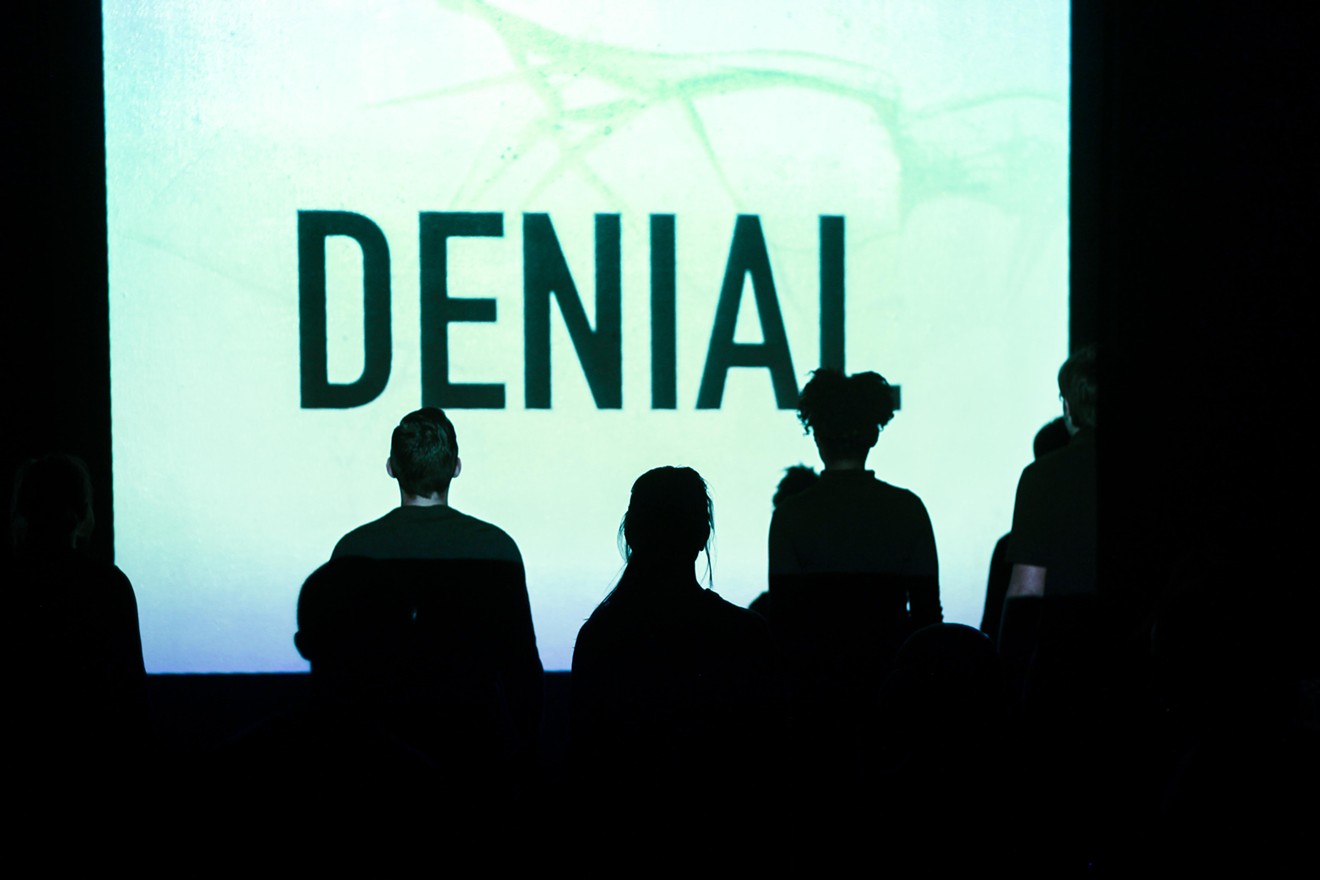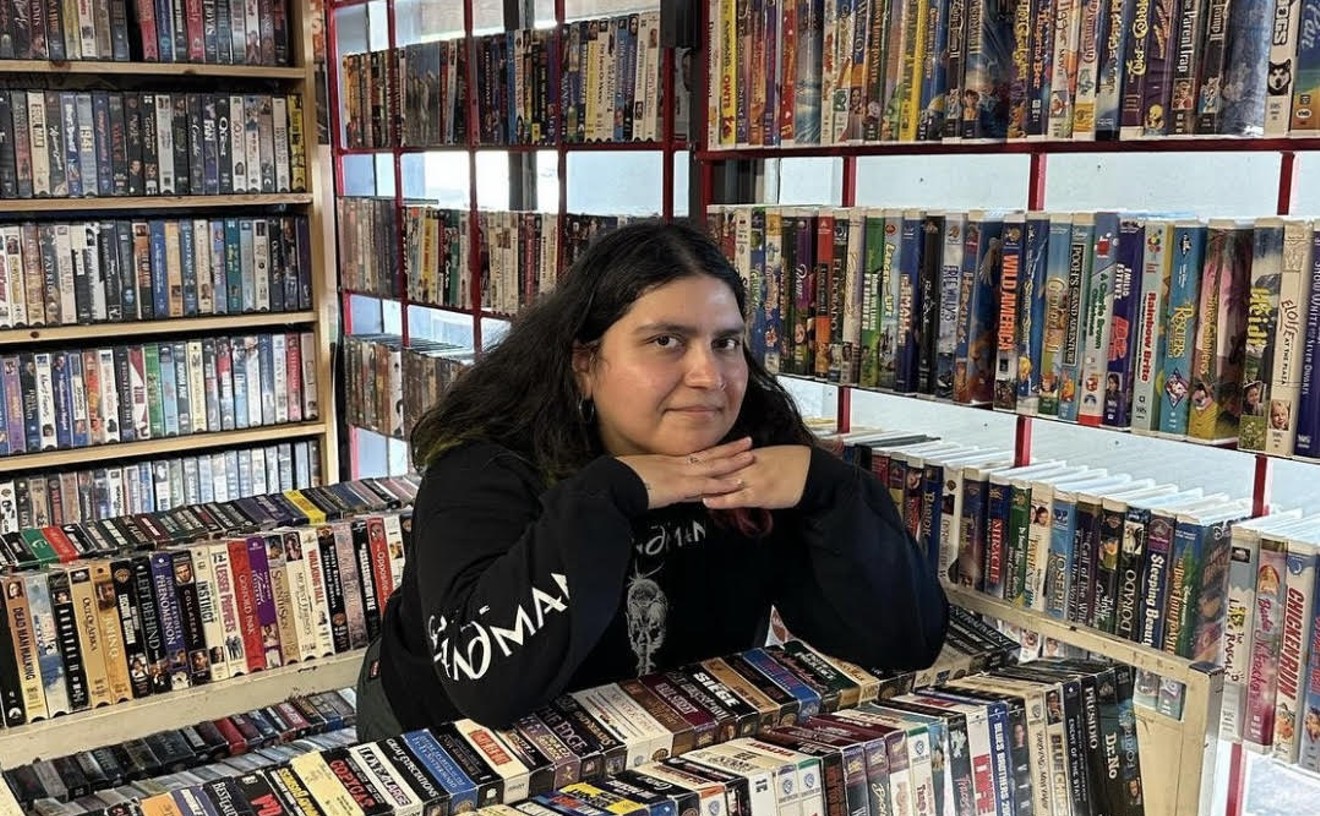Cry Havoc’s teen actors convey as much depth, empathy and emotion as any adult actors onstage in Dallas and likely anywhere. These are kids to watch.
The company took interviews from all kinds of folks involved with the shooting last summer, including community organizers, an anonymous Dallas Police Department officer, a wrongly identified suspect, a victim and a Parkland trauma surgeon. The teens conducted interviews, transcribed them word for word and turned them into monologues.
After the initial gunfire and real audio and video footage from the attacks, the performance begins with the actors playing themselves, brainstorming how to turn the interviews into meaningful theater. They're seated throughout the audience, where they bounce ideas off each other. It immediately gives the show the feel of a conversation, which Cry Havoc artistic director Mara Richards Bim has said was the goal.
The teen actors tell where they were when the shootings took place, how they found out, how they felt. As their voices gather over each other, the audience is placed in the mind of a person trying to make sense of trauma in real time, in real ways.
The scenes rotate through the interviewees, each name displayed on a screen. After each monologue, a cast member asks if they can take a selfie with the subject. The click of the iPhone camera then displays the actual person on the screen, smiling with the teens, Richards Bim and co-director Ruben Carrazana. Despite the heavy and uncomfortable subject matter, the interview subjects are always smiling in the pictures.De’Aveyon Murphy as Dr. Brian Williams, Parkland trauma surgeon, is also a highlight. You could hear a pin drop as he came to tears. DPD officer Raashid Brown, who was sitting in the front row, wiped away his own tears at this point.
tweet this
As the tension builds, the subjects get closer to the attack, such as with Mark Hughes, the falsely identified suspect who was participating in the July 7 protest rally with an automatic weapon strapped to his chest.
“Open carry was not meant for black people,” he states. An audience member calls out an affirmation.
The actors pop back into their real personas, debriefing the conversations and admitting their biases and dilemmas with the subjects. A "counterprotester" at the rally presents a problem for the actors; they could have sworn he had a confederate flag. Another actor shows a photo proving he did not.
They tackle real issues with each other. The cast is as diverse as any you’ll see in Dallas, and the actors debate what it means to be colorblind. It’s as tricky for them as it is for most adults, but they break it down with empathy and understanding.
Among the most breathtaking scenes are the ones that get really personal. Stakiyah Washington reads a statement, portraying her older sister, who was at the rally. The depth and wisdom she demonstrates is remarkable in such a young actor.
De’Aveyon Murphy as Dr. Brian Williams, Parkland trauma surgeon, is also a highlight. He navigates the doctor’s complicated feelings and the many, many layers to the situation with a performance that was emotional and raw. You could hear a pin drop as he came to tears. DPD officer Raashid Brown, who was sitting in the front row, wiped away his own tears at this point.
Trinity Gordon deftly portrayed shooting victim Shetamia Taylor. The genial mother of four seemed to be sitting onstage at that moment.
Surprisingly, the play is not without humor. As the cast describes how they lost the audio for one interview (Richards Bim forgot to clear out the recording device to make room), De’Aveyon Murphy does an over-the-top impression of the artistic director. As the actors gently poke fun at Richards Bim, it is obvious how much they love and respect each other.
This is a talented, sharp group of actors. They worked around a WFAA-TV (Channel 8) camera operator Saturday night and treated the audience to their maturity during the talkback. Brown, the DPD officer, congratulated the actors during the talkback, telling them they nailed the feelings of many officers and that he'd recommend the show to his colleagues.
Choreography by Emily Bernet that adds physical elements of the show is quite well done. Sound and lighting design by John M. Flores and Aaron Johansen, respectively, are crucial components that add credibility to this documentary.
Never have I seen an audience that wasn’t predominantly white at a theater. Cry Havoc has tapped into something that appeals to different kinds of theatergoers. It is a conversation to be had. There is no agenda to this play, just real voices from the Dallas community.
A handful of the actors graduated high school this year. It will be exciting to see what they do next.
Anyone who cares about the national conversation around race relations and police brutality will find something to take away from this, regardless political leanings. This production is a true catalyst for a difficult conversation in a time when we can all use a little understanding.
Shots Fired, 8 p.m. Wednesday, July 12, through Saturday, July 15, Trinity River Arts Center, 2600 N. Stemmons Freeway, No. 180, $15, kitchendogtheatre.com.













